Why Bring Dr. Raj Shah to Your Schools
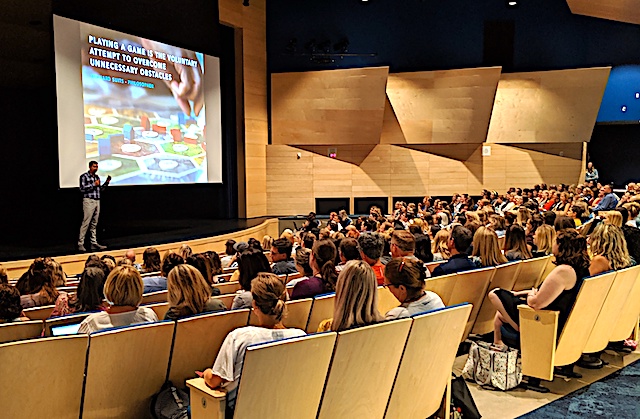
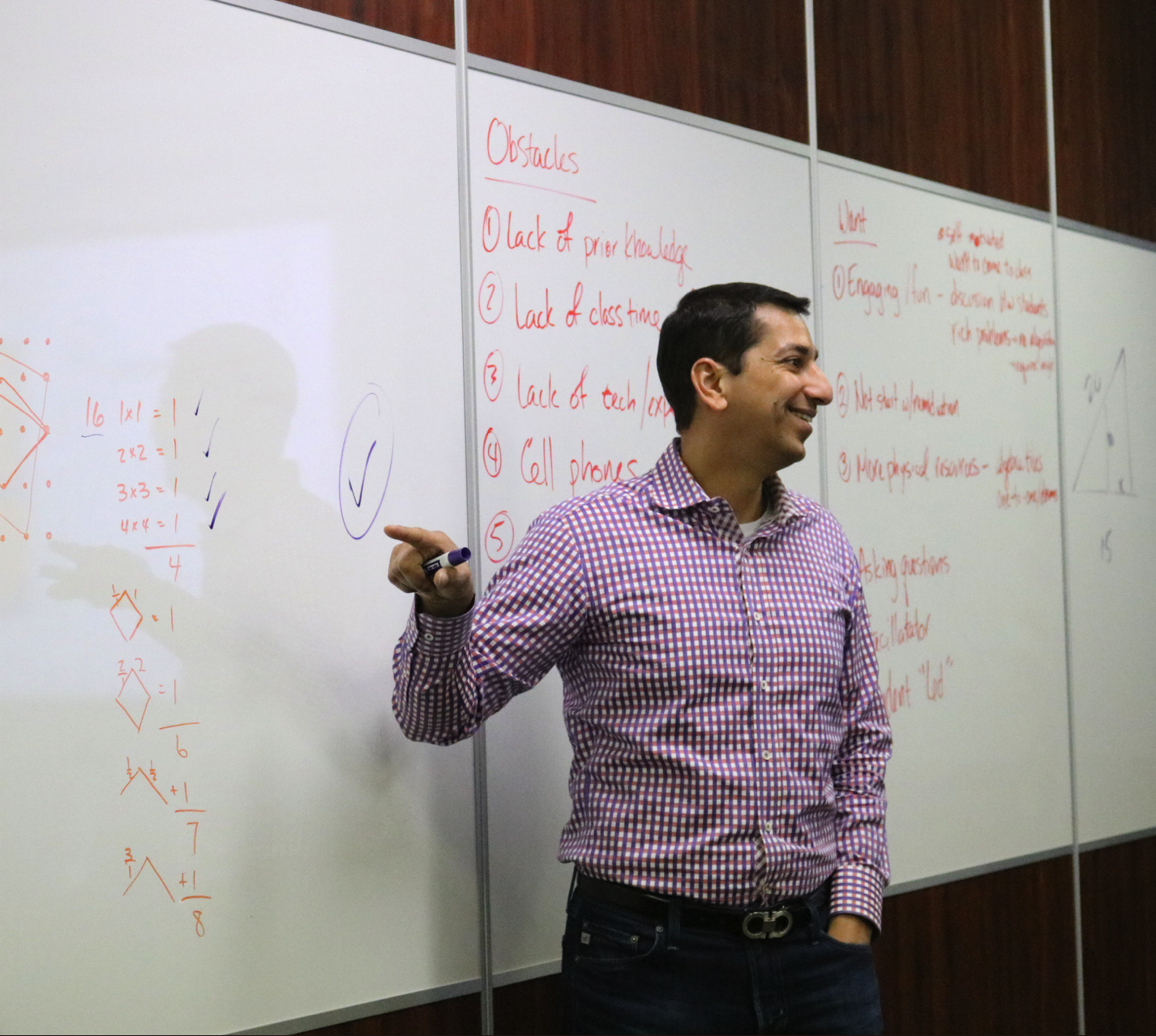
On a winter morning in an Ohio school, a group of teachers sat quietly staring at a deceptively simple math problem projected on the screen.
There were no formulas.
No instructions.
No answers.
"Don't solve it yet," Dr. Raj Shah told them. "Just be curious."
Within minutes, the room shifted. Teachers leaned in. Ideas surfaced. Laughter broke out. Many realized—sometimes uncomfortably—that they were experiencing math the way their students rarely do: thinking deeply, without fear of being wrong.
That moment captures Dr. Shah's work.
A former physicist and engineer turned nationally respected math-education thought leader, Dr. Shah helps teachers transform everyday lessons into experiences that spark curiosity, deepen thinking, and build resilience. His core belief is simple but radical: all students are capable of meaningful mathematical thinking when classrooms are designed for exploration rather than compliance.
Not a Program. A Shift.
Dr. Shah doesn't arrive with a boxed curriculum or scripted solutions. Instead, he helps teachers rethink how questions are posed, how struggle is handled, and how students experience themselves as thinkers.
Districts that bring in Dr. Shah consistently report:
- Increased student engagement and willingness to struggle productively
- Teachers who feel re-energized and confident trying inquiry-based approaches
- Immediate, practical strategies teachers can use the very next day
- A shift from "How do I cover this content?" to "How do I invite thinking?"
"Two days later, we are still talking math," said Karen Mahan of Lorain Digital Academy after a full-day workshop.
"My kids are excited to come to math class now," reported an intervention specialist in Columbus City Schools, "and I can't believe how much they are capable of."
Why It Works
Dr. Shah's sessions don't just talk about engagement—they model it.
Teachers experience math as learners first. They puzzle. They wonder. They struggle. And in doing so, many rediscover something they hadn't felt in years: curiosity.
"It was one of the best PDs I've participated in," said William Bayliss of Oberlin Schools. "My mind literally exploded as I understood math with an inquiry mindset."
Others notice immediate changes in their classrooms.
"I was afraid it would take away from class time," said Roxanna Rubinic, an Algebra teacher in Columbus City Schools. "But students actually work faster on regular assignments and are more willing to tackle new concepts without panicking."
Why This Matters Now
At a time when artificial intelligence can instantly compute and automate routine procedures, what students need most isn't faster answers—it's confidence, perseverance, and the ability to think through unfamiliar problems.
Dr. Shah's work anticipates this shift. He helps schools move beyond math as memorization and toward math as sense-making, reasoning, and creative problem-solving.
This is not about lowering standards.
It's about raising expectations—for thinking.
A Catalyst for Lasting Change
If your district wants:
- Less math anxiety
- More student voice and engagement
- Stronger problem-solving skills
- Teachers who leave PD inspired rather than exhausted
Dr. Raj Shah is not just a speaker.
He's a catalyst for changing how math feels—for teachers and students alike.
Schedule a Free Consultation
If you're curious whether this approach is right for your teachers and students, Dr. Shah offers a free, no-obligation consultation for district and school leaders.
Together, you'll explore:
- Your current math culture
- Where engagement or confidence may be breaking down
- Whether a keynote, workshop, or longer partnership makes sense
No pitches. Just a thoughtful conversation.
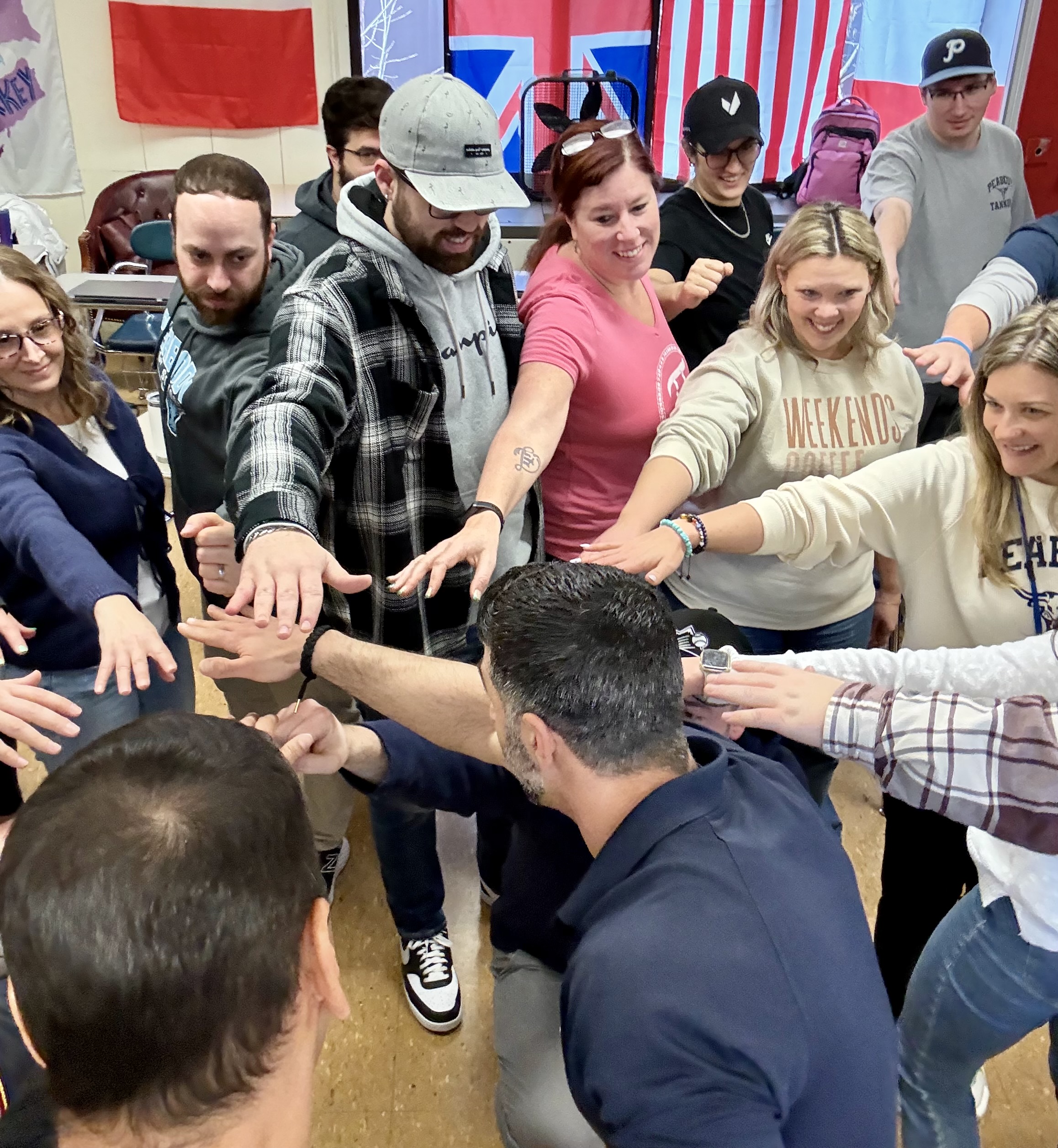
Teachers united around a common vision
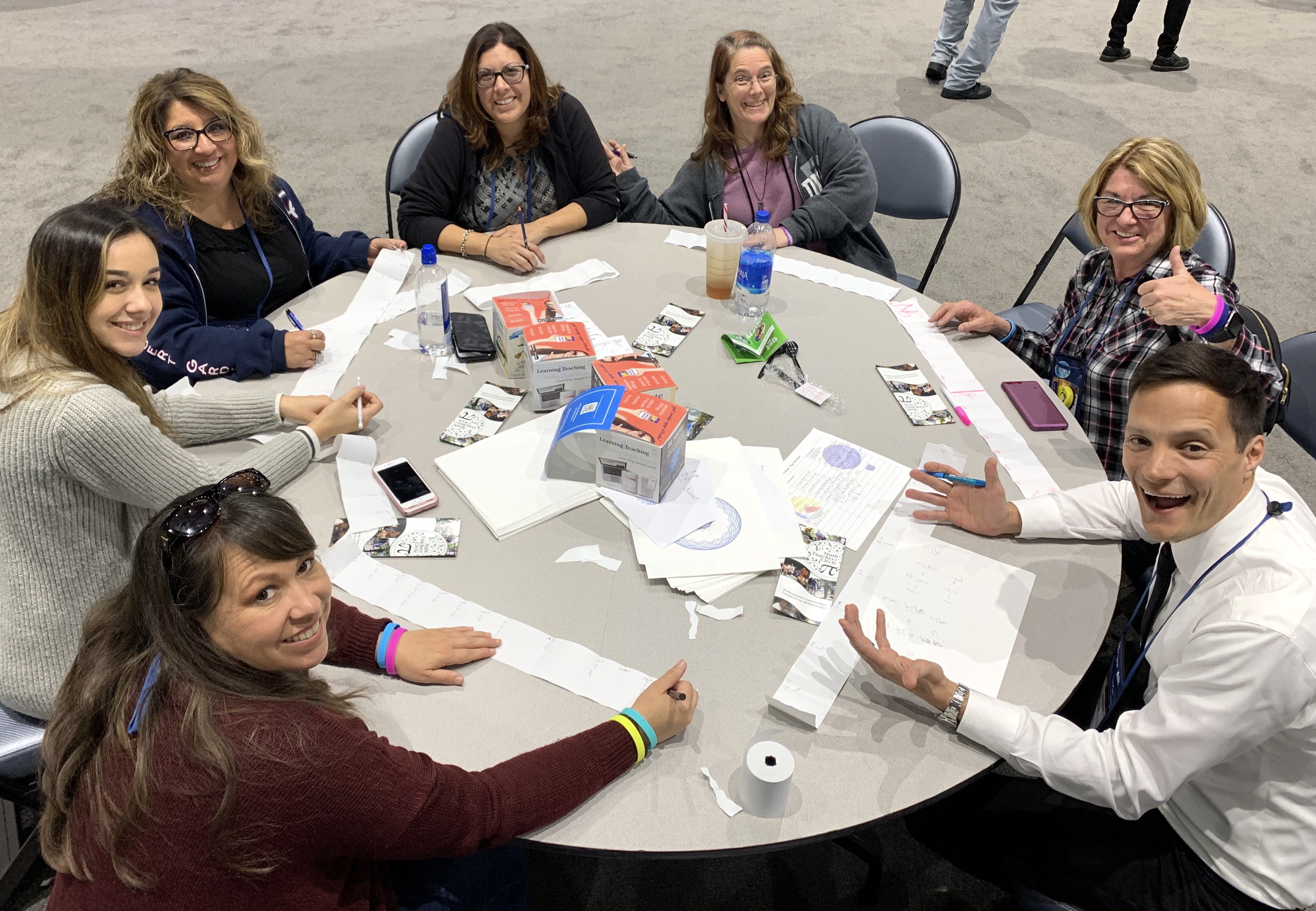
Teachers having fun in PD
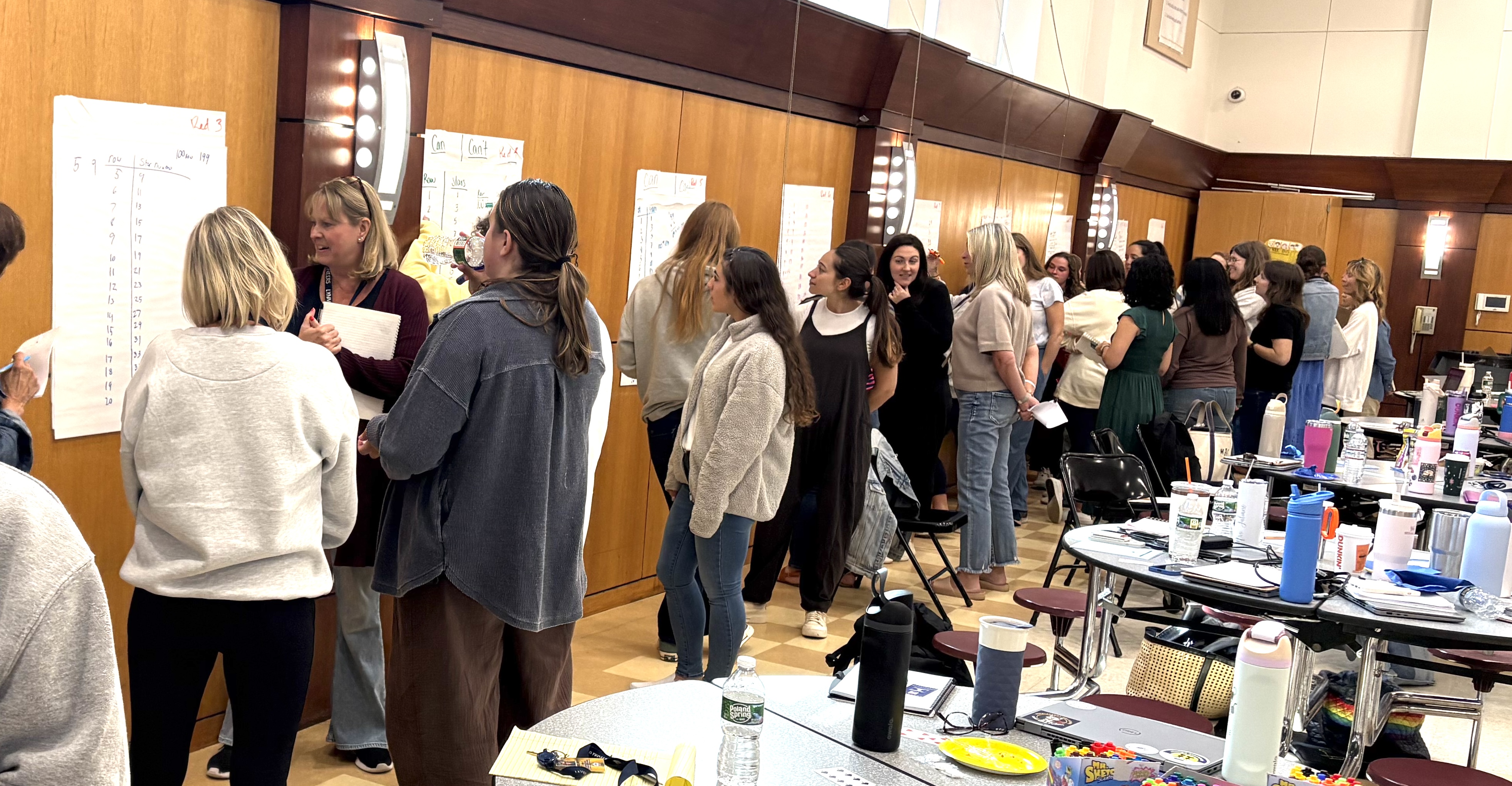
Teachers becoming students and tackling math problems together
Popular Workshops

Making Math Irresistible
By implementing the same psychology that video game designers use to create addictive games, teachers can spark student interest, motivate them to take on challenging tasks, and promote productive struggle — even if they have not mastered the material yet. Teachers walk away with strategies they can use the very next day.

How to Unlock Student Brilliance
Quickly solving problems and getting the correct answers is often seen as a sign of intelligence or genius. Yet every student possesses a unique set of abilities that extend far beyond speed and accuracy. Likewise, every teacher brings untapped superpowers to the classroom. In this uplifting session, we’ll celebrate the brilliance within ourselves and our students—and explore how to build a culture where everyone can leverage their strengths to unlock the collective brilliance of the classroom.

Math is... Visual
The seminar will demonstrate the power of visual diagrams in explaining school mathematics. Visual models help students develop number sense, aid in understanding difficult algorithms, and assist in problem-solving. You will discover several ways to help students bridge the gap from concrete to abstract thinking. Several models will be discussed, including number lines, area models, Exploding Dots™, and more.

Math is... Questions
Questions are at the heart of mathematics and discovery. But in most math classes, the teacher asks the questions and students attempt to compute answers. We will investigate the value of flipping this script. You ’ll learn how to give students more ownership over questions, how easily craft extension and differentiation questions, and how to use questions to get kids unstuck.

Math is... Problem Solving
Help your students move beyond “I’m stuck!” by equipping them with 8 powerful problem-solving strategies. In this hands-on session, we'll explore creative ways to approach math problems, discover visual models that build deep conceptual understanding, and leave with a ready-to-use problem-solving flow chart and classroom template.
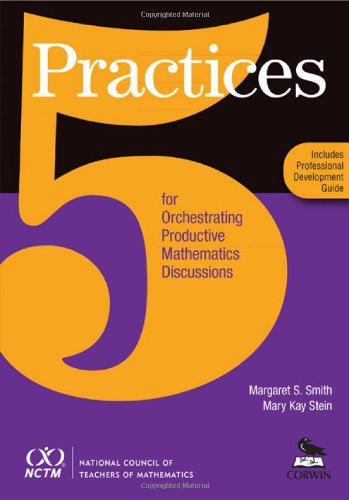
Five Practices for Orchestrating Productive Math Discussions
This is an essential framework to turn discussions from random and unstructured to equitable and meaningful. We will work through several examples and then apply this to problems that the teachers are planning for students in the coming weeks. This is based on the work of Smith & Stein (2011).
"It was one of the best PDs I've participated in. My mind literally exploded as I UNDERSTOOD math and some very basic concepts with an inquiry mindset!!!"
– William Bayliss
– Oberlin Schools
"Just wanted to thank you for all the ideas. I've been starting my resource room Algebra class with one of your puzzles and the kids love it! I was afraid it would take away from class time, but they actually work faster on their regular assignments on days we start with a mind warm-up. They're also more willing to tackle new concepts without panicking. "
– Roxanna Rubinic
– Columbus City Schools
"I wanted to thank you again for coming out to Albuquerque and speaking at the Inspiring Mathematical Minds conference. You did a phenomenal job! The entire Albuquerque Public School math department board as well as the district leaders were beyond impressed!"
– Aaron Springer
– McGraw Hill Education
"I really can't convey just how much I love your session. There are some people who are amazing at presenting information in a way that keeps people engaged and you are definitely one of them! Which I guess I should have figured given your session topic!"
– Christina Tondevold
– Building Math Minds
"My kids are excited to come to math class now and I can't believe how much they are capable of!"
– Intervention Specialist
– Columbus City Schools
"Dr. Shah's full day workshop was awesome! Two days later, we are still talking Math!!! It was a wonderful PD. Thank you for your time, insight AND activities."
– Karen Mahan
– Lorain Digital Academy
"Thank you for co-teaching my fifth grade class. I definitely heard the most out of my students all year. I was surprised with a lot of their answers and wonderings."
– Jamir Jones
– Reynoldsburg City Schools
"It was one of the best PDs I've participated in. My mind literally exploded as I UNDERSTOOD math and some very basic concepts with an inquiry mindset!!!"
– William Bayliss
– Oberlin Schools
"Just wanted to thank you for all the ideas. I've been starting my resource room Algebra class with one of your puzzles and the kids love it! I was afraid it would take away from class time, but they actually work faster on their regular assignments on days we start with a mind warm-up. They're also more willing to tackle new concepts without panicking. "
– Roxanna Rubinic
– Columbus City Schools
"I wanted to thank you again for coming out to Albuquerque and speaking at the Inspiring Mathematical Minds conference. You did a phenomenal job! The entire Albuquerque Public School math department board as well as the district leaders were beyond impressed!"
– Aaron Springer
– McGraw Hill Education
"I really can't convey just how much I love your session. There are some people who are amazing at presenting information in a way that keeps people engaged and you are definitely one of them! Which I guess I should have figured given your session topic!"
– Christina Tondevold
– Building Math Minds
"My kids are excited to come to math class now and I can't believe how much they are capable of!"
– Intervention Specialist
– Columbus City Schools
"Dr. Shah's full day workshop was awesome! Two days later, we are still talking Math!!! It was a wonderful PD. Thank you for your time, insight AND activities."
– Karen Mahan
– Lorain Digital Academy
"Thank you for co-teaching my fifth grade class. I definitely heard the most out of my students all year. I was surprised with a lot of their answers and wonderings."
– Jamir Jones
– Reynoldsburg City Schools
